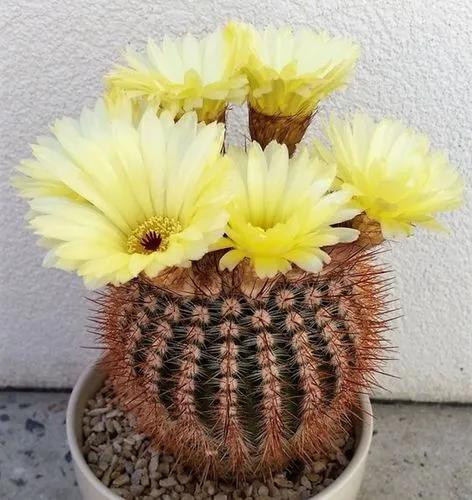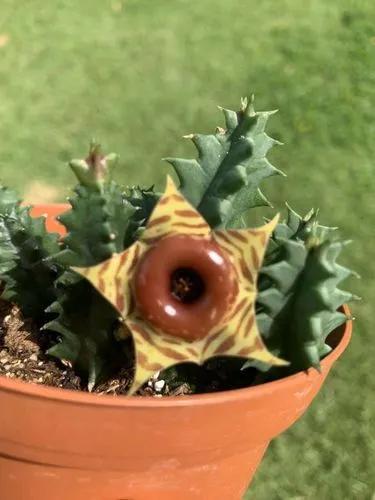Ferocactus wislizeni, the fishhook barrel cactus, also called Arizona barrel cactus, candy barrel cactus, and Southwestern barrel cactus, is a species of flowering plant in the cactus family Cactaceae, native to northern Mexico and the southern United States. It is a ball-shaped cactus eventually growing to a cylindrical shape, with spiny ribs and red or yellow flowers in summer.
Arizona Cactus Care
Ferocactus Wislizeni



In urban areas, the Fishhook Barrel is valued as an ornamental plant. It is drought tolerant and good for xeriscaping, and it is also a low-maintenance full-sun plant.
How to Care for the Plant

Water

Water slow and deep with in ground cacti, this seems to really keep them from stressing so much and grow more evenly. This is also referred to as ‘deep soaking’. Deep soak is a slow, but steady, drip from a garden hose over a two to six hour period. The size of plant determines the duration.

Pruning

When pruning, the natural form of any plant should be maintained, and topping or hedging does just the opposite. Most desert plants such as cacti and succulents have some type of armament to protect them in their native habitat.

Soil

Soil. Most cacti should be grown in mineral-based soils consisting of a mixture of sands, silts, and gravel (good drainage) and which does not harden when dry. Cacti from tropical dry forests and high altitude regions benefit from a mix containing 25-50% of decomposed organic matter.

Temperature

“If the heat is too severe they will stop growing,” he said. Cacti require temperatures of about 85 degrees at night so they're able to respire, the plant equivalent of breathing. If nighttime temperatures remain too high the plants' water reserves will slowly be depleted.

Additional

Many other plants, such as the candelabras cactus and mistle toe can cause vomiting and diarrhea when ingested. Perhaps one of the most commonly encountered plants, however, is poison oak or poison ivy.

Popularity

194 people already have this plant 27 people have added this plant to their wishlists
Discover more plants with the list below
Popular articles






